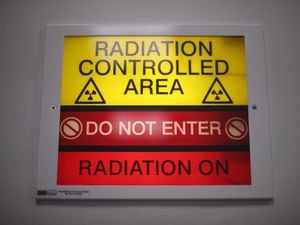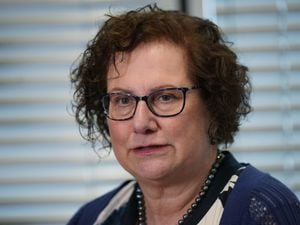Radiotherapy optional for older breast cancer patients, study suggests
The treatment was also found to not affect the risk of secondary tumours.

Radiotherapy does not improve survival rates in older patients with early breast cancer, a new study has suggested.
Radiotherapy – a treatment where radiation is used to kill cancer cells – alongside breast-conserving surgery (lumpectomy) and hormone therapy (the current standard treatment) made no difference to the death rates for patients aged 65 or older, the research found.
The treatment was also found to not affect the risk of secondary tumours, known as metastases.
However, it did slightly reduce the likelihood of the cancer recurring, but within the clinically acceptable range of risk.
The findings could help doctors decide whether or not radiotherapy, which has many side effects, is the right choice for patients.
Ian Kunkler, professor of clinical oncology at the University of Edinburgh, said: “Radiotherapy can place a heavy burden on patients, particularly older ones.
“Our findings will help clinicians guide older patients on whether this particular aspect of early breast cancer treatment can be omitted in a shared decision-making process, which weighs up all the risks and benefits.”
The 10-year study, one of the first long-term clinical trials in older breast cancer patients, suggested radiotherapy can be safely excluded when treating over-65s for early stage breast cancer, experts say.
The standard treatment for early breast cancer is breast-conserving surgery followed by radiotherapy and hormone treatment to reduce the risk of recurrence in the breast.
Researchers say patients 65 years and older represent at least half of patients with the condition.
Although radiotherapy adds an extra burden to older patients, with side effects linked with heart problems and second cancers, there have been very few clinical trials in this age group.
Researchers from University of Edinburgh and the Western General Hospital, Edinburgh, conducted a trial called PRIME II with 1,326 patients.
The patients were 65 years old or older, with so-called “low-risk” breast cancer, meaning they had a tumour no more than 3cm in size, not involving the lymph nodes underneath the armpit and likely to respond to hormone treatment.
All patients were prescribed breast-conserving surgery – where the cancer is removed while leaving as much normal breast as possible – and at least five years of hormone therapy.
Half of the group were randomly selected to have radiotherapy in addition for three to five weeks after surgery.
Patients were assessed at annual clinic visits and with breast scans.
Researchers found in patients treated without radiotherapy the risk of recurrence of cancer in the treated breast after 10 years was 9.5%, while giving radiotherapy reduced the risk to 0.9%.
However, both likelihoods are within the accepted range of recurrence according to current clinical guidelines.
There was no difference in overall survival between both groups and most deaths were due to causes other than breast cancer, the research found.
The findings are published in the New England Journal of Medicine.
Dr Kotryna Temcinaite, senior research communications manager at Breast Cancer Now, said: “We welcome research that adds to our understanding of how women can receive the best possible treatment and care for breast cancer.
“These findings suggest patients who were aged 65 or over with certain low-risk types of the disease and didn’t receive radiotherapy alongside surgery and hormone therapy, had no greater risk of the cancer spreading elsewhere in their body, or of dying, than the women who did receive this treatment.
“However, they had a small increased risk of the disease returning in the same place.”





